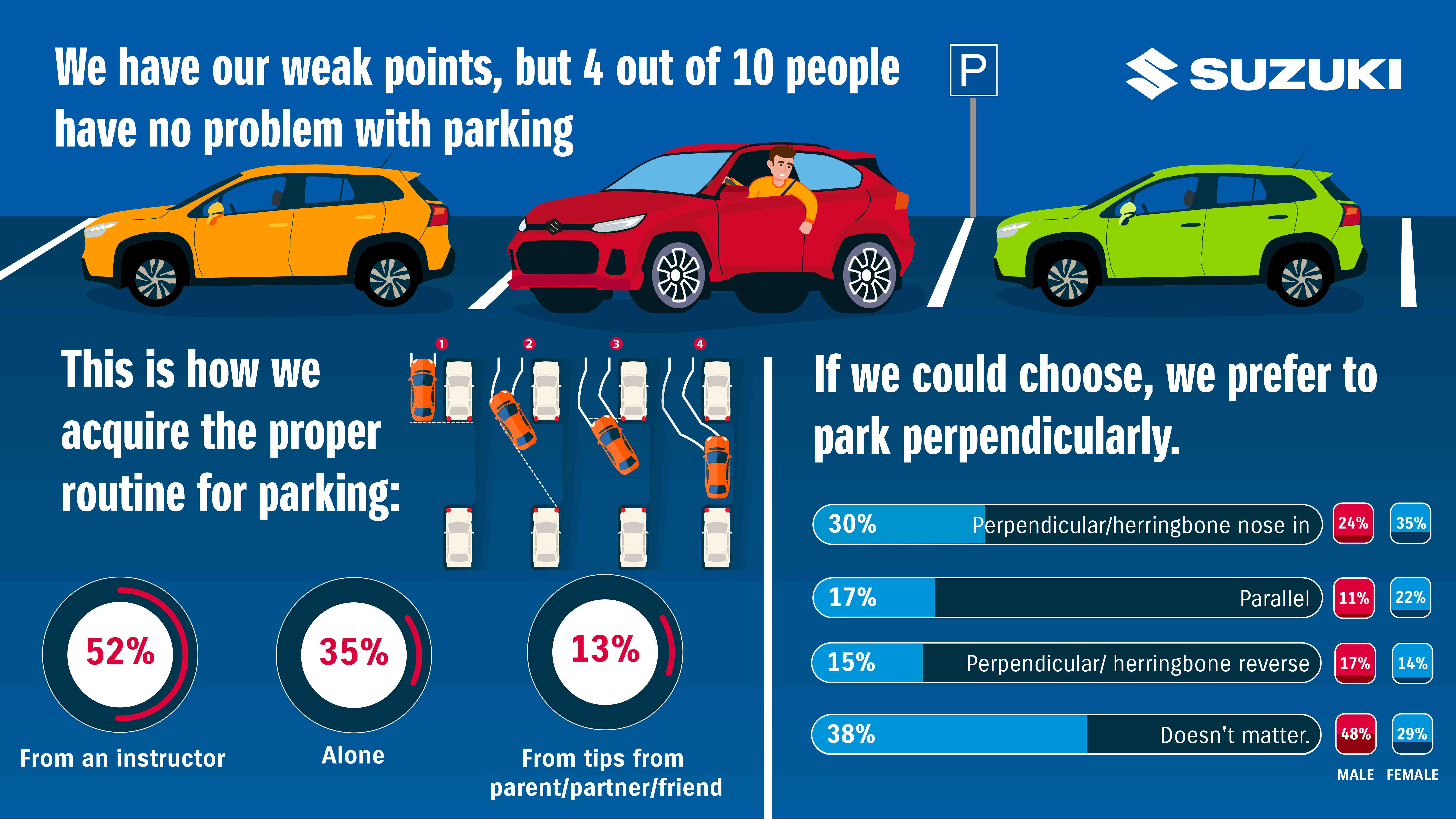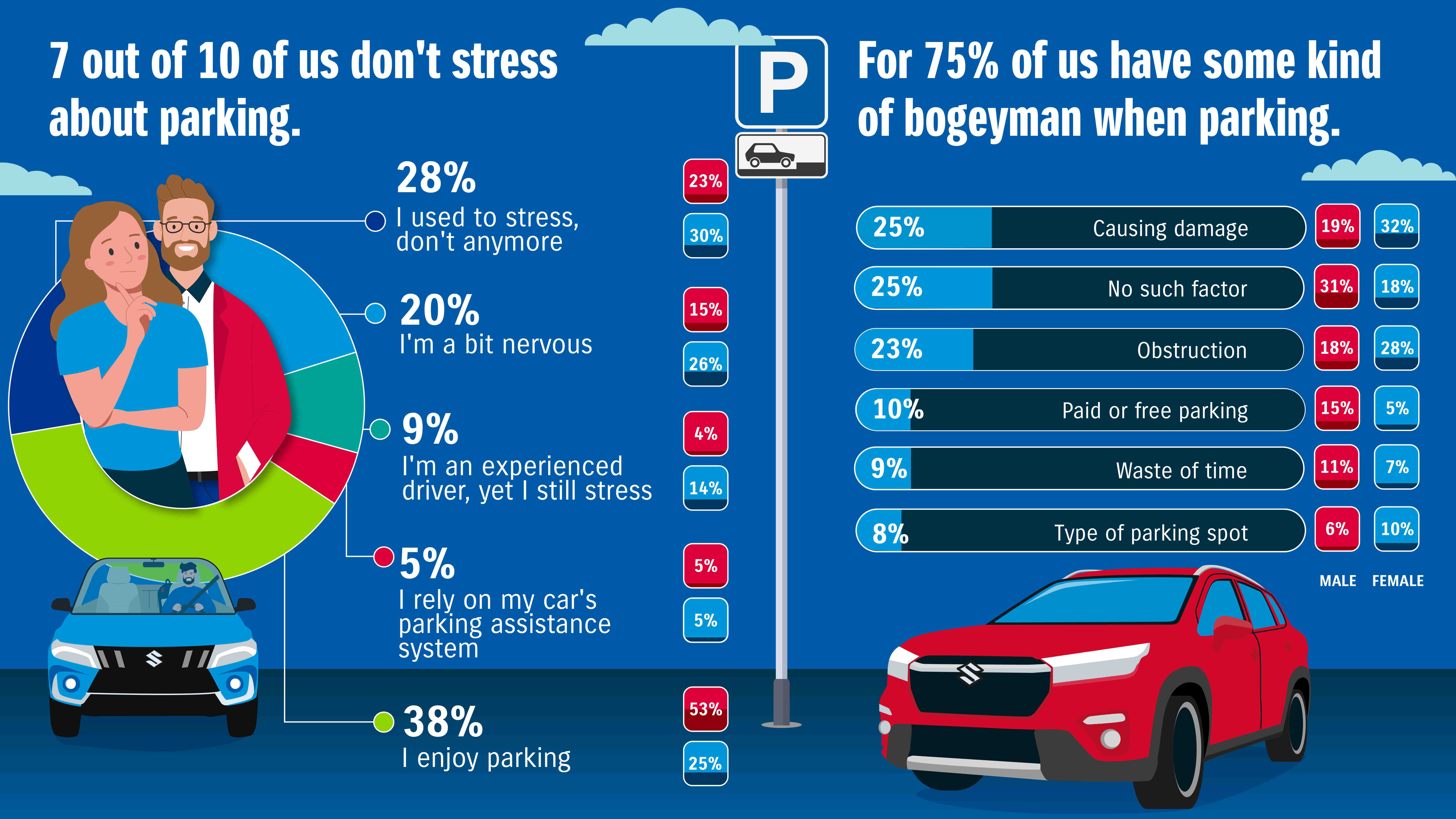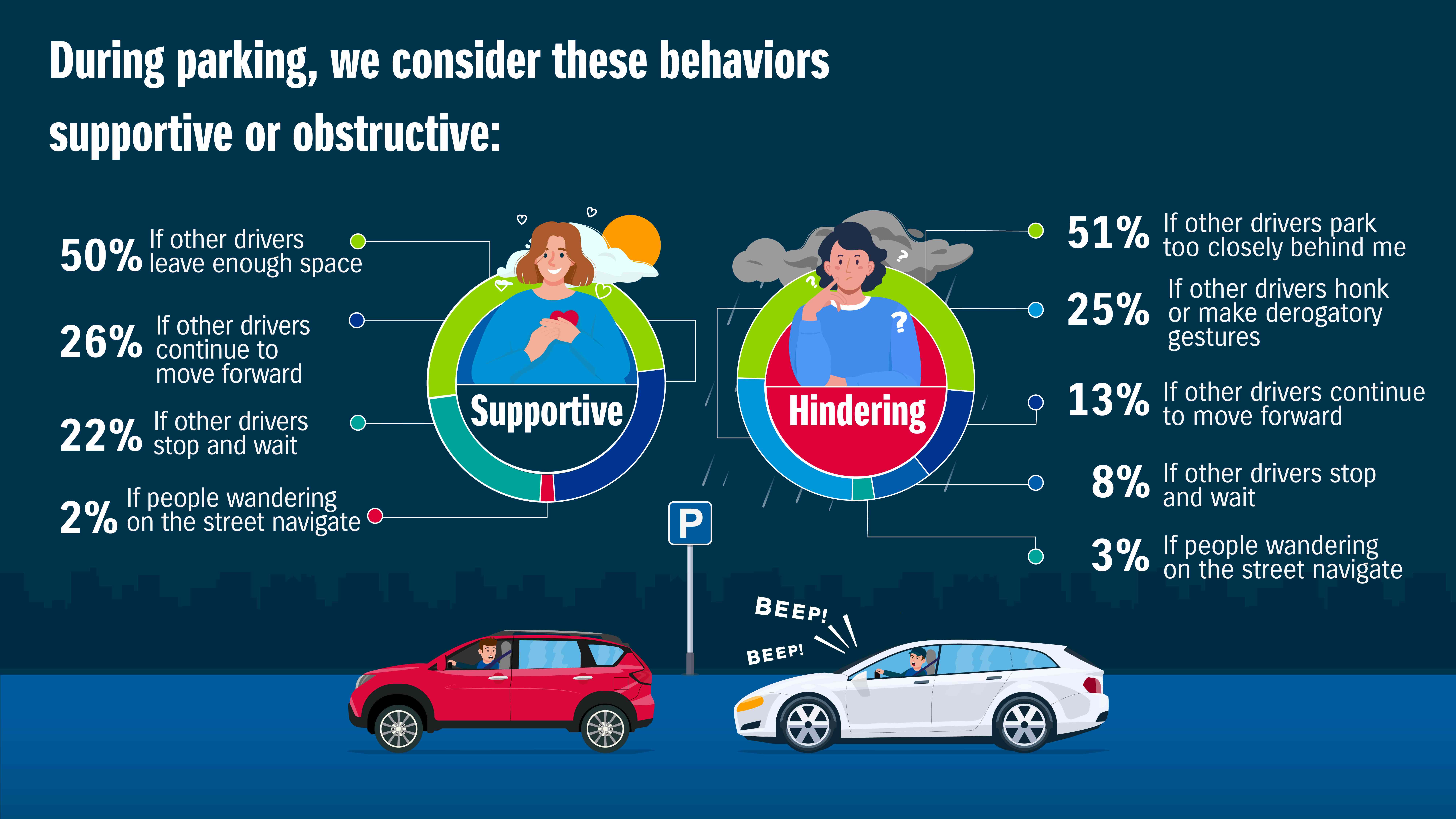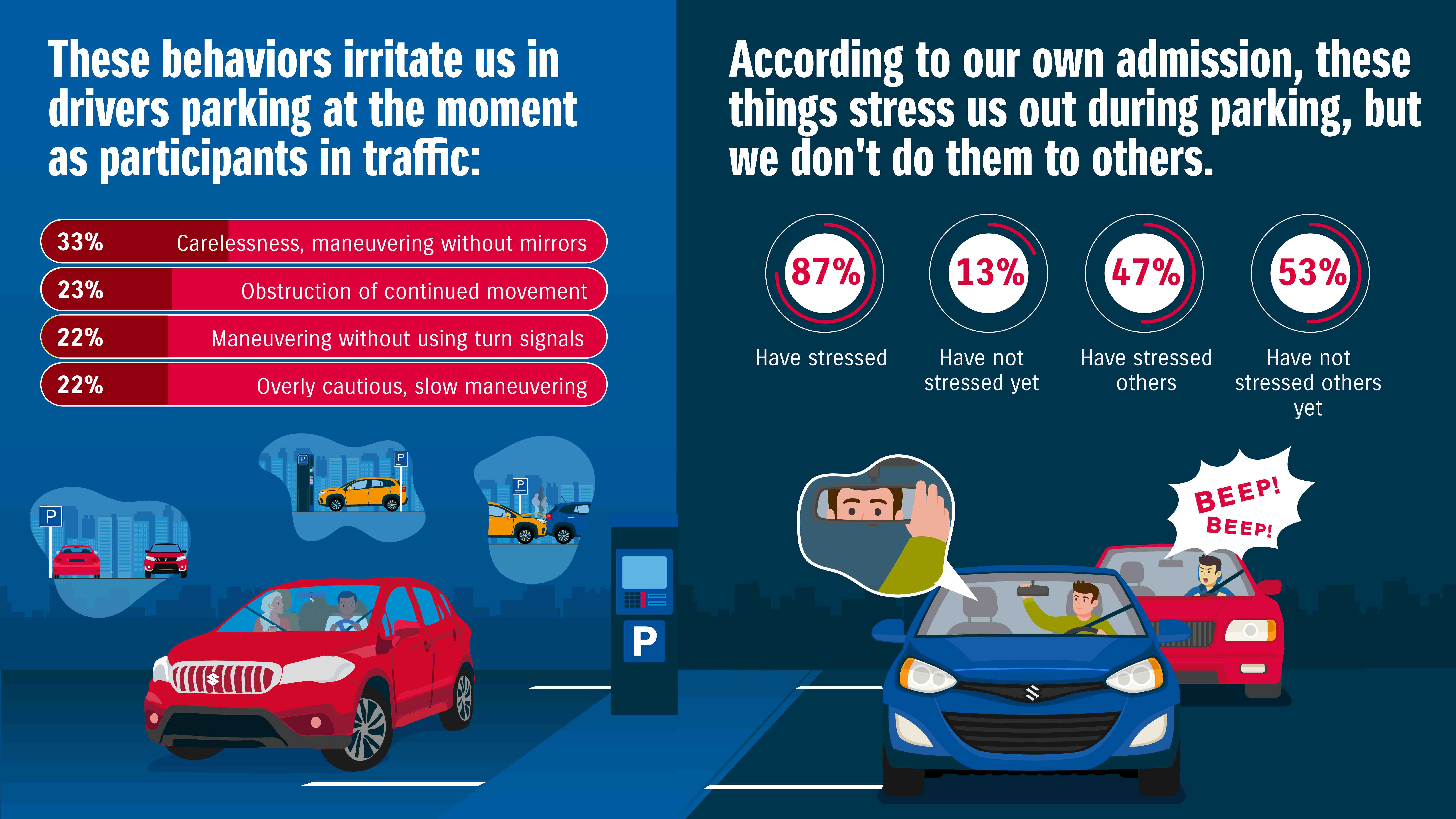news
Magyar Suzuki research: We have our weak points, but 4 out of 10 people have no problem with parking
Esztergom, 26. March 2024 – Causing damage (25%), impatience, and obstruction (23%), paid or free (10%) - these are the main factors we ponder most when parking. We prefer to park either perpendicular or parallel, but it frustrates us when another driver doesn't leave enough space for maneuvering. However, the good news is that the majority of drivers don't stress out, despite 9 out of 10 people having felt pressured during parking, according to a survey among drivers conducted by Magyar Suzuki.*
We rely equally on instructors as we do on advice from acquaintances
Five out of ten people feel that during preparation for the driving test or in subsequent additional lessons, they gained the necessary parking skills from their instructor; however, the same number believe that they needed additional help from their surroundings or tips from others to acquire these skills.
Four out of ten drivers claim they don't mind where they park. However, if a preference develops, then perpendicular parking and parallel parking (38%) are clearly favored.
Most people don't stress about parking
Seven out of ten people – according to their own admission – don't stress about parking because they have the necessary routine (66%) or rely on driving assistance systems (5%).
Nevertheless, there are still bothersome factors for the majority (75%). We mostly worry about causing damage to our own car or someone else's (25%). We fear being hindered by other participants in traffic (23%). 10 percent of us worry about whether we'll find a paid or free parking spot, and 9 percent worry about spending too much time finding an available space. 8 percent get frustrated because they can't maneuver safely into every spot due to their driving routine, so they have to pass by open spots. However, one in four respondents isn't bothered by anything.
Interestingly, men are more concerned about finding paid or free parking spots than women (men: 15%, women: 5%), and waste of time is a more significant factor for them (men: 11%, women: 7%). Women, on the other hand, worry more about causing damage to a vehicle (32%) and are more frustrated by the attitude of other participants in traffic (28%).
How do other drivers assist or hinder our parking?
There's no unanimous opinion on how other drivers can support or hinder those currently parking; it often comes down to individual preferences. However, we clearly feel supported when others leave us enough space for maneuvering (50%), and we see the lack of this as the most hindering factor (50%). Using the horn or making gestures to encourage faster maneuvering (25%) is also seen as hindering during our parking, while we pay little attention if pedestrians closely observe our parking (3%). 98 percent of us neither require nor appreciate pedestrians' involvement. We have mixed feelings about whether other drivers should continue or stop and wait behind us while we park.
As participants in traffic, we find these parking behaviors most irritating
The respondents are bothered by certain behaviors of drivers currently parking, such as when they don't use their mirrors, and they sometimes have to retreat to avoid them (33%), if the parking car doesn't leave enough space to continued movement (23%), or if it neglects to use turn signals or overly hesitates during the maneuver (22%-22%).
Other people stress us out during parking, but we don't do this to others? Nine out of ten people have felt pressured while parking. However, only half of the respondents feel that they themselves have caused such pressure, indicating that we are more lenient towards our own behavior during parking than towards that of others.
*The survey of Magyar Suzuki was conducted between 12.02.-02.18.2024 via the Typeform interface. The research covered parking preferences and pain points. A total of 672 respondents answered the questions.










